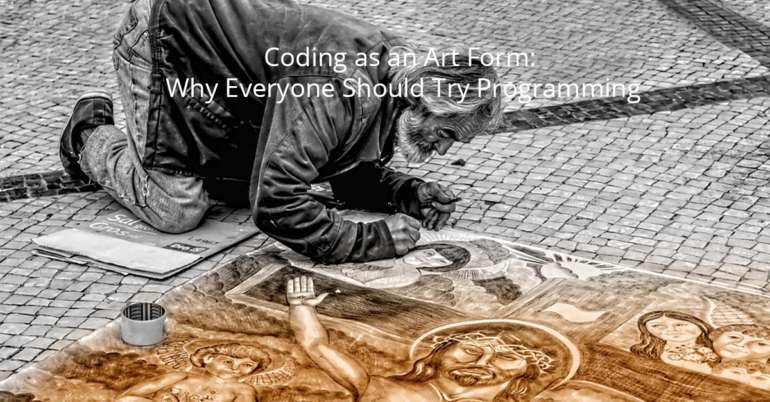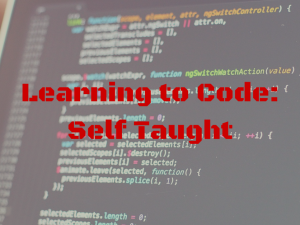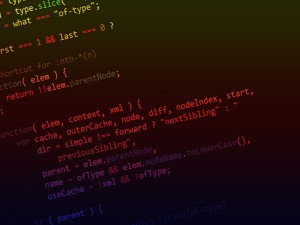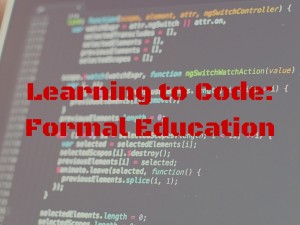
Often, people who don’t have much experience with coding see it as exceptionally challenging. They imagine that in order to build a beautiful and interactive a website, you have to be computer genius or Harvard dropout like Mark Zuckerberg, the founder of Facebook. Further, movies, TV shows and other forms of media reinforce inaccurate stereotypes that most coders are logic-driven to the point of being cold, calculating or socially awkward. These stereotypes aren’t true.
Although coding can require a certain amount of analytical thinking, website development and other forms of coding can also be incredibly creative. I consider myself to be fairly artistic, having a background in film, dance, theater, music, photography and even pottery. When I hop on the computer to start developing a new website, I feel just as imaginative as I would in a theater or production studio. People often look surprised when I tell them my interests are in the arts, human rights and coding. To others, these hobbies seem disjointed, but they all tie together via an interest in creative design and human storytelling. Don’t be dissuaded from trying to learn website development just because you don’t view yourself as the typical programmer; coding is also a fun and innovative artistic process.
The workshop tools to bring your ideas to life
When I ask friends why they haven’t started learning how to code, despite their general interest, they often state that the hurdles are simply too overwhelming. I completely understand how it can seem intimidating to start website development as a beginner, but just reframing your perspective can eliminate that fear. Many of the people I know who are interested in learning to code are interested because it could increase their potential job opportunities or can lead to making easy money by launching a start-up. All of these are fine reasons for wanting to learn to code, but if they are the only ones, they probably won’t be enough to motivate you long-term. Coding takes time and patience, and if you’re learning to code only for external fulfillment, you might find the time you blocked off to practice PHP will be spent watching TV.
Instead, view coding as a new engine for internal fulfillment. Have you ever wanted to start your own travel blog, have an online venue to sell your paintings or see if that website idea you once joked about with friends could actually go viral? Coding doesn’t have to be detached from your other passions, and you’ll likely become a better programmer if they actually go hand-in-hand. I started learning to code in 6th grade so I could make custom websites to blog with online friends about our favorite TV shows. It was totally dorky; I would add pictures of the different characters to the website header, make the website background the TV show logo and put in other silly add-ons related to the plot. I loved it because it tied back into my interest in writing and video. Once the site was finished, my friends and I would write fiction based on the characters in the show and post videos editing together clips from the show. Looking back, it is a little embarrassing for me today, but because coding was linked to my other two artistic hobbies, it sparked a genuine passion for website development that I’m grateful for today.
The visual design behind your vision
Photographers are constantly considering who the intended audience is, what mood or emotions the image should convey and where the viewer’s eye should first look. The photographer can incorporate these details by changing the model’s pose, altering the lighting or background, zooming in for a close up or zooming out for a wide-angle view and many more details that can transform a photograph from standard to stunning.
The same principles and considerations are true for website developers. One of my favorite aspects of coding is brainstorming and designing the visual display. Working with code is especially exciting since you have every color in the visible color spectrum at your fingertips. Building a personal fashion blog will likely have a much different color scheme and layout design than a professional company’s business website. Even two sites that have fairly similar goals, like Facebook and Pinterest, which are both social media sites for sharing personal content and interests, look vastly different. Coding a great website requires an artistic eye to make a both beautiful and intuitive User Experience (UX) and User Interface (UI). You can plan out your website design beforehand, such as sketching it out by hand or using computer software for wireframing or graphic design. Or you can do what I did when I first started coding, and just jump right in and learn the design aspect through trial and error! Either way, website building requires just as much visual creativity as other art forms, like photography and theater.
The speed, shortcuts and creative spirit you pick up as you go
When you’re first learning film production and editing, you have to keep playing around with the settings. Between the video camera and the editing software, there are hundreds of buttons and settings to choose from. It can take hours just trying to understand the basics and finish filming and editing a 30 second clip. However, with just a little practice, you could produce the same video in a snap. Once these basics are mastered, film becomes exponentially more fun because you can start experimenting with complex features. Want a scene to take place on the moon? No problem! Instead of trying to find the right props and set location to mimic the moon, you can just film on a green-screen and edit in the moon background later.
Coding is similar; learning the basics of website development can feel tedious, but once you’ve grasped the nuts and bolts, you can embed complex and fun features. When I was first learning HTML/CSS for coding elementary website pages, I spent hours hunched over the computer, trying to understand what each line of code meant. With practice, though, I can write and edit those basic lines of code in a snap and begin adding more intricate website designs. These embellishments, like slideshows, videos, moving text, responsive sizing for tablets and mobile devices, certainly aren’t for beginning coders. However, once you’ve mastered the basics, you can take your art and creativity to a new level with these more complex features.
Jump in headfirst!
Like when you’re learning any new skill or art form, sometimes you just need to dive right in and figure it out as you go! There are dozens of free videos, interactive classes and other resources that can teach you coding at your own pace. If you need support or guidance along the way, consider finding a friend or school club that can offer advice. No matter what your artistic passions are, website development can be a fun way to expand your creative horizon, so just jump on in!







